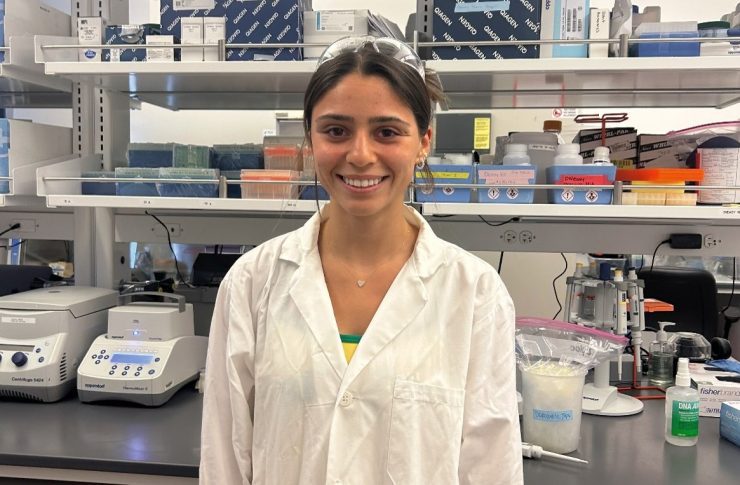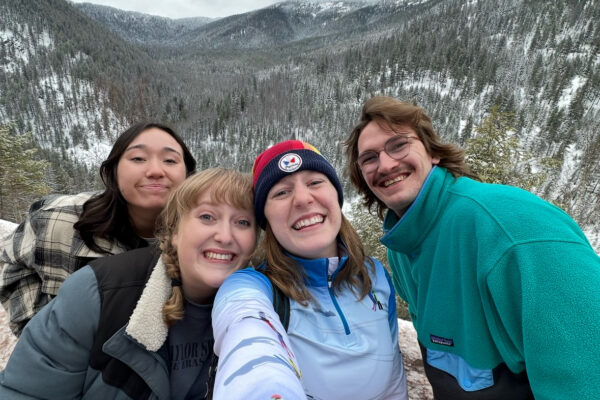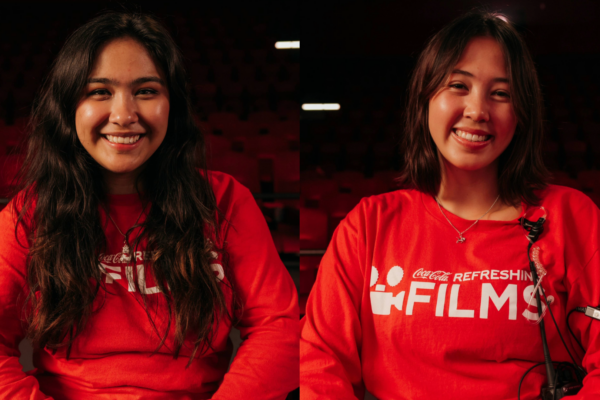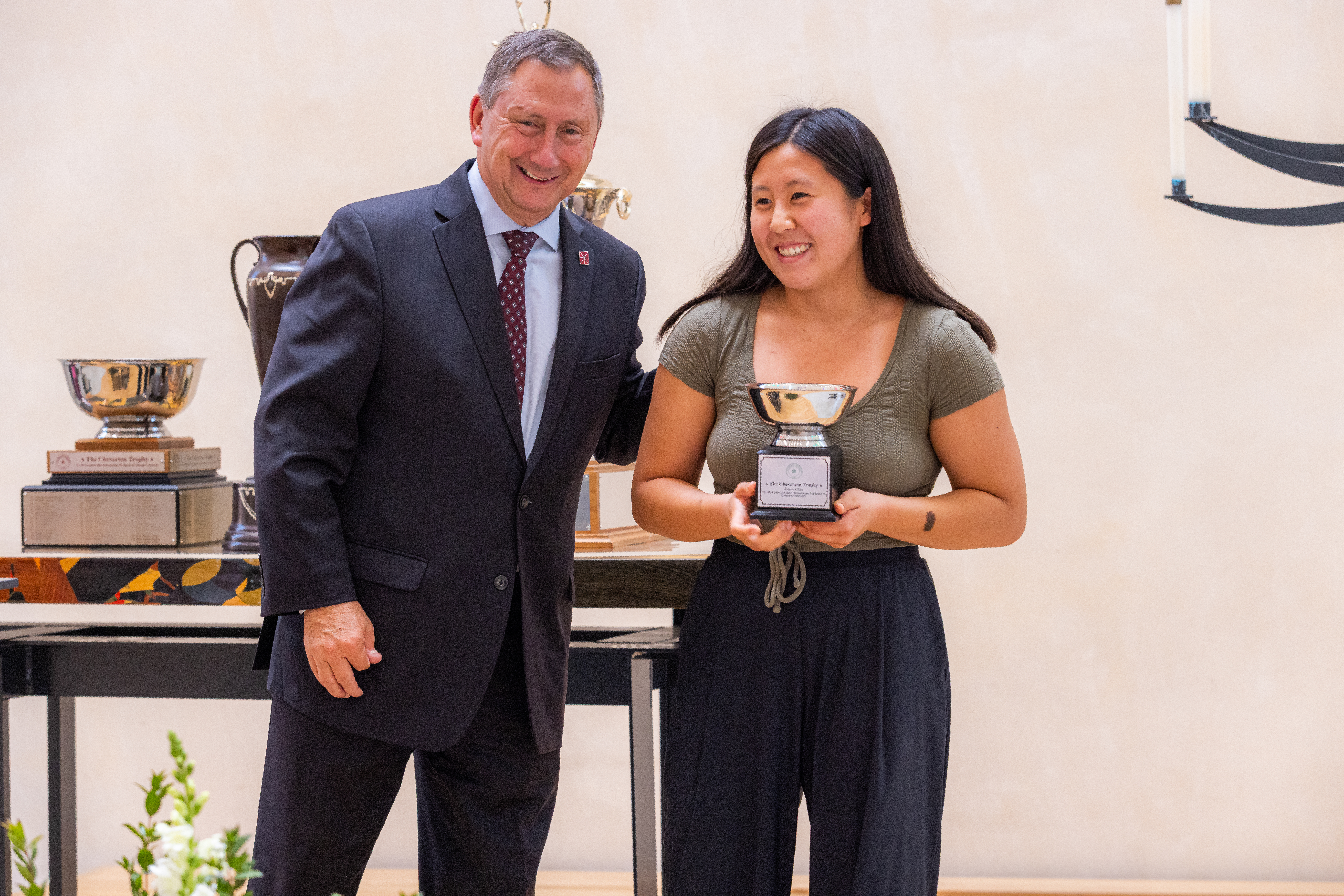Many people – including college students – may not give much thought to the cans of tuna in the grocery store, beyond whether they say “albacore” or the liquid they’re packed in.
Chloe Castanon ’25 is aiming to change that through her Summer Undergraduate Research Fellowship (SURF) at Chapman University with food scientist and associate professor Rosalee Hellberg.
Castanon, a biological sciences major, is researching effective methods of DNA testing on canned tuna to cut down on species mislabeling in the food industry, which can help reduce mercury ingestion.
“I like that my project has commercial application,” she says. “Mislabeling is a lot more common than I initially thought, which makes me believe no one is really keeping large canning companies accountable.”
Tuna species account for 85% of worldwide seafood production, according to the United Nations. Canned tuna is the third-most consumed form of seafood in the United States, and concerns over labeling have grown along with imports, according to the NOAA.
“It’s consumed pretty widely and oftentimes lower-priced species are mislabeled as higher-priced species,” Castanon says.
The most alleged fraud is related to products labeled chunk light or skipjack, she says.
Some species like albacore have higher mercury levels than others. Heating tuna during canning degrades its DNA. Castanon is using three DNA testing methods on 24 samples to show which are most efficient and accurate at identifying the species of tuna in commercial cans – including multiple species in a single can.
In the SURF program, she likes getting deeper into research and working on her own projects, while working directly with Hellberg.
“When I run into a problem I don’t have to ask someone else – I can ask her,” Castanon says. “She’s also super patient and very willing to answer any of my questions.”
Castanon is considering graduate work in biology, focusing on genetic engineering in food.
“Maybe looking at manipulating the genetics of food products to make them better,” she says.
SURF has shown her what doing post-bachelor’s research would be like.
“I love how Chapman prepares us for that,” she says.
Besides helping solve a huge issue in the food industry, she chose her SURF project because she loves tuna and sushi.
“It’s my favorite food – I’ll eat sushi five days a week if I can afford it,” she says.
For fellow sushi aficionados who may be wondering, her favorite spots are Wazabi and Heemo in Orange.
Chapman’s Center for Undergraduate Excellence organizes SURF, an on-campus eight-week summer program that offers Chapman University undergraduate students experience in hands-on research and creative scholarship mentored by expert faculty. The fellowship includes a $4,000 stipend for 30 hours of research work per week.




